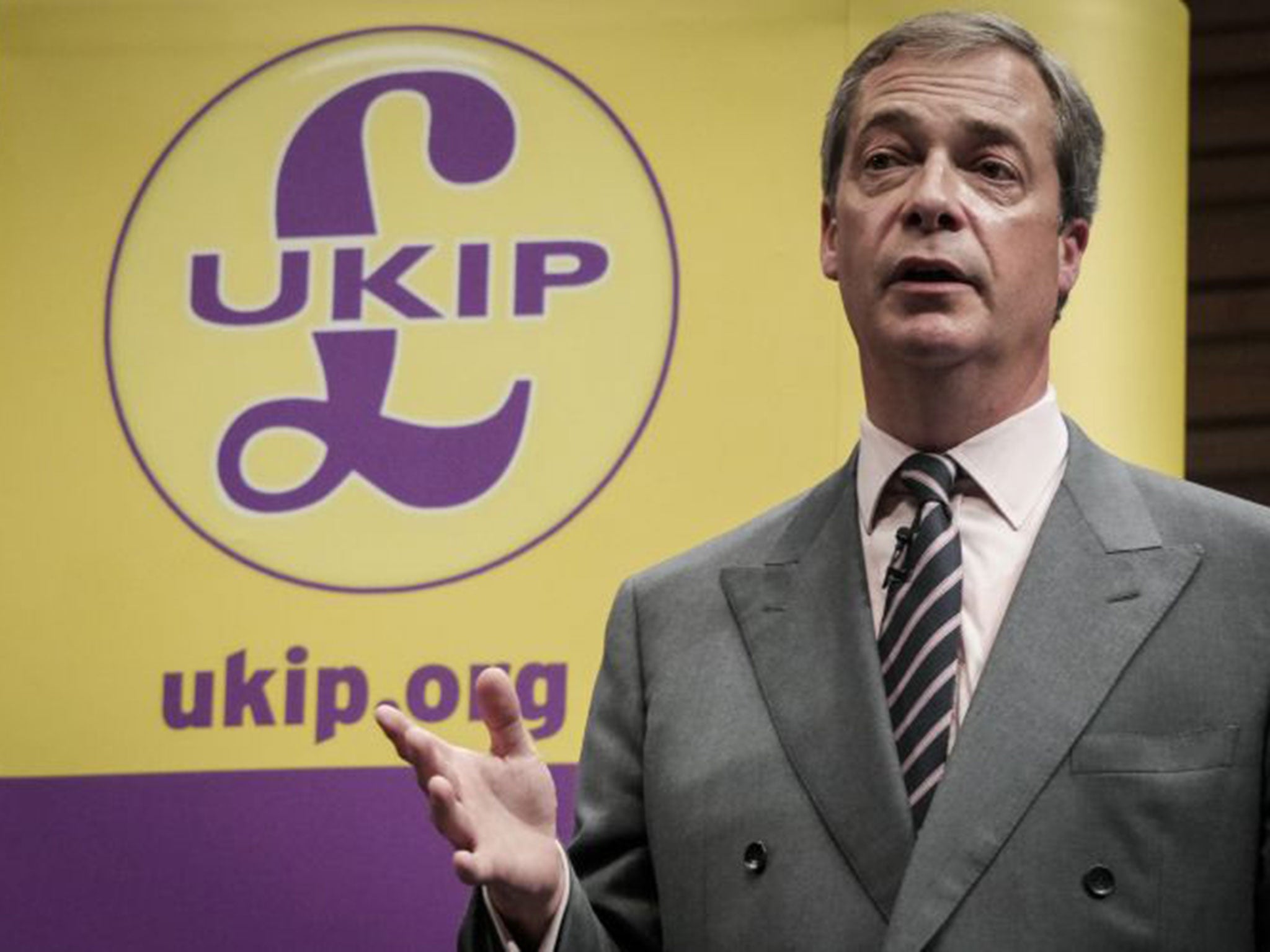Donald Macintyre's Sketch: Nigel Farage’s thoughts from the back of an envelope
Farage's centrepiece was a plan to allow five per cent of the electorate to trigger a referendum against a government proposal they didn’t like

Support truly
independent journalism
Our mission is to deliver unbiased, fact-based reporting that holds power to account and exposes the truth.
Whether $5 or $50, every contribution counts.
Support us to deliver journalism without an agenda.

Louise Thomas
Editor
“How would Ukip run a government?” ran a startling question in a note inviting us to a “keynote” speech by Nigel Farage. Luckily for his opponents, for whom the nightmare scenario next year is to discover that the Ukip leader is Prime Minister, Farage modestly disavowed any such prospect.
Which may be as well, since his ideas on “the role of the state”– the subject of his address to the august Institute of Government on Monday – is a work in progress. Farage often gives the impression of having jotted down a few thoughts on the back of an envelope on the way to a meeting. As he did in this instance, undaunted by an audience including present and former civil servants used to challenging the notions of politicians.
The centrepiece was a plan to allow five per cent of the electorate (2.3 million) to trigger a referendum against a government proposal they didn’t like. Representative democracy, he added airily, had not “served us very well” without a “safety net”. But, said a man from the Department of Energy, how could investors have any certainty if, say, a plan to expand nuclear power was subject to a referendum that might overturn it? Well, said Farage, that was a “risk” but anyway the “grand folly” of the “wind energy project” would have been stopped by such a plebiscite. The Energy man did not seem reassured.
Then a Treasury official questioned his comprehensive plan for MP recall. Wouldn’t decisions be taken not in the national interest but on the basis of whether an MP who backed it might be sacked by his constituents? If that turned out to be a problem you could always “change the rules” and “set the bar higher,” said Farage
He had said that the “lion’s share” of funding for NGOs was paid by the governments they lobbied – whether Whitehall or the European Commission.
Another questioner, 35 years a civil servant, told him politely he had got his facts wrong, before asking Farage, who had said he wanted smaller government, what he would cut. He had only been setting a “direction of travel,” he said, and anyway some services, currently outsourced, might have to be brought back into Whitehall.
He said he would cut overseas aid, which as the Institute’s director Peter Riddell pointed out, would account for a mere 0.7 per cent of the national budget. “It’s a start,” said Farage cheerily.
Finally, a journalist asked him if a referendum would not restore capital punishment, which the polls show at least half the country wants, or forbid the building of minarets as in Switzerland. No, thanks to a “massive change on social attitudes” not even a referendum of Ukip members would support capital punishment. He didn’t answer the question on minarets.
A lesser man might have been a bit chastened by all this. Farage is made of sterner stuff.
Subscribe to Independent Premium to bookmark this article
Want to bookmark your favourite articles and stories to read or reference later? Start your Independent Premium subscription today.
Join our commenting forum
Join thought-provoking conversations, follow other Independent readers and see their replies
Comments